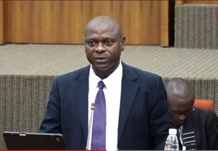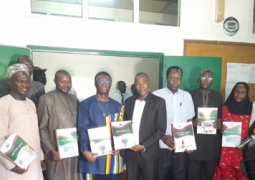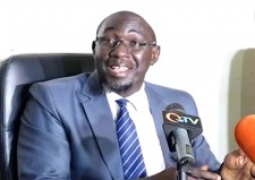
In 2022 the following year revenues stagnate at D16.5 billion, achieving only 62% of the target. Tax revenues dropped slightly, non-tax collections shrank, and grants contributed just a fraction of what was projected. Expenditure, however, still reached D21.6 billion, leaving another hole plugged by treasury bills and Central Bank securities. Analysts note this period as a reflection of The Gambia’s struggle to mobilise domestic revenues, with overreliance on borrowing becoming the norm.
By 2023, revenues soared to D23.3 billion, surpassing targets by 18%, thanks to improved tax performance and unexpectedly high non-tax collections. Spending, at D22.1 billion, was finally in line with the approved budget. For the first time in years, the government claimed to have turned the corner, boasting of a surplus. Yet skeptics warn that while the headline numbers shine, underlying problems—like low capital investment (just D2.1 billion) and high debt service (D2.1 billion interest payments)—paint a less rosy picture.
He added that this is what government calls a watershed moment in fiscal transparency.
“By presenting three years of audited accounts today, we clearly demonstrate our commitment to achieving in-year reporting and to being more accountable to the Gambian people,” Minister Keita told lawmakers.
For years, The Gambia’s public accounts were in arrears sometimes lagging up to nine years behind schedule. The Public Finance Act 2014 requires timely submission of these reports, but successive governments failed to keep pace. Now, with three years of backlogged accounts tabled in one sitting, Minister Keita hailed the moment as proof of government’s “commitment to accountability and international best practices.”
The member for Old Yumdum, Hon Abdoulie Ceesay, raised two motions, first one to commit the report to the Finance and Public Accounts Committee (FPAC) and the second for the plenary to give the go ahead to the Auditor General to release the report for public consumption.
Both motions were supported by Members of Parliament.




